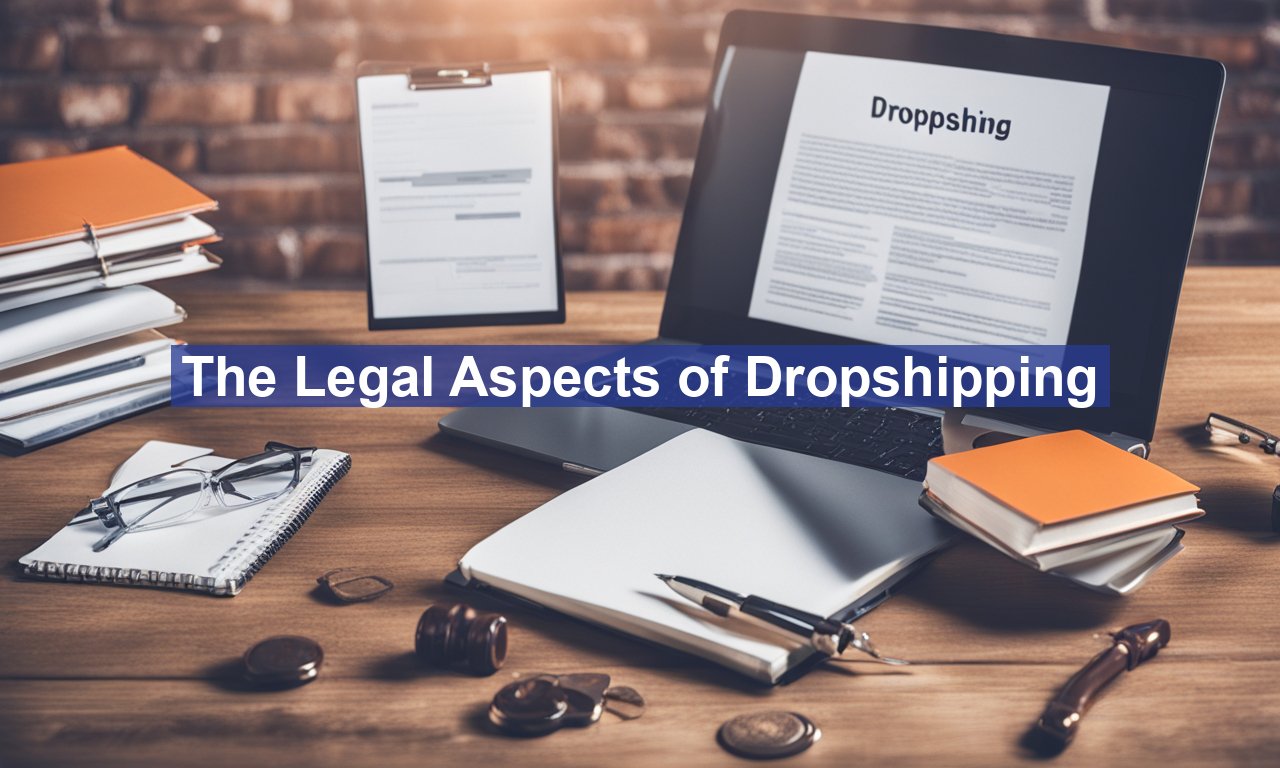The legal aspects of Dropshipping in the ever-evolving landscape of eCommerce, dropshipping has emerged as a popular business model, allowing entrepreneurs to start online stores without holding any inventory. Despite its many advantages, dropshipping also presents a unique set of legal challenges and considerations. Whether you’re a seasoned seller or a newcomer eager to dive into this booming industry, understanding the legal aspects of dropshipping is crucial.
This article delves into the key legal components, answering common questions to help you navigate your dropshipping business with confidence and compliance.
Understanding The Legal Aspects of Dropshipping
Before diving into the intricate legalities, let’s start with a basic understanding of what dropshipping is. In the dropshipping business model, the retailer doesn’t keep the products it sells in stock. Instead, when a store sells a product, it purchases the item from a third-party supplier, who then ships it directly to the customer. This eliminates the logistics and costs of maintaining inventory, making it an appealing option for many online entrepreneurs.
Key Legal Considerations in Dropshipping
1. Business Formation and Structure
The first step in any business venture is deciding on the legal structure. Dropshippers typically choose between forming a sole proprietorship, partnership, LLC, or corporation. Each option has its own tax implications, liability coverages, and reporting requirements:
- Sole Proprietorship: Simplest form but offers no personal liability protection.
- LLC: Offers personal liability protection and has flexible tax options.
- Corporation: Provides strong liability protection but is more complex and costly to manage.
Consulting with a business attorney can help you choose the right structure that best shields your personal assets and aligns with your business goals. You can read more about choosing the right business structure from the Small Business Administration.
2. Supplier Agreements
Supplier agreements are at the heart of a successful dropshipping operation. These contracts define the terms and conditions of the relationship between you and your suppliers. Key elements to include in a supplier agreement are:
- Product Availability: Clear terms on what products will be available and any price variations.
- Shipping and Handling: Details on shipping times, handling processes, and responsibilities.
- Returns and Refunds: Policies for handling returns and refunds to manage customer expectations and supplier obligations.
Securing a well-drafted supplier agreement helps prevent disputes and ensures a smooth operational flow. To dive deeper, you can explore this comprehensive guide on supplier agreements.
3. Intellectual Property and Trademark Issues
Intellectual property (IP) rights protect the creations of businesses, and it’s vital to ensure that your business does not infringe upon the IP rights of others:
- Trademark: Avoid using names, logos, or images that resemble other brands to prevent trademark infringement.
- Copyright: Ensure all product images, descriptions, and media you use are either created by you or licensed.
Checking trademarks through the U.S. Patent and Trademark Office and understanding copyright laws can help you avoid costly legal battles. Learn more about intellectual property on the USPTO’s website.
Regulatory Compliance
1. Consumer Protection Laws
Understanding and adhering to consumer protection laws is crucial to maintaining your business’s integrity. These laws are designed to prevent fraudulent practices and ensure consumer rights are protected. As a dropshipper, you should:
- Provide Accurate Product Information: Ensure that product descriptions are truthful and not misleading.
- Data Protection: Implement measures to protect consumer data in compliance with regulations like GDPR or CCPA.
2. Tax Obligations
Even in dropshipping, tax obligations can’t be overlooked. Depending on your location and the locations of your customers, you may be required to collect sales tax. Additionally, maintaining detailed records can simplify your tax filing process. Consult a tax professional to understand your obligations and ensure compliance across different jurisdictions.
Conclusion: Safeguarding Your Dropshipping Venture
Navigating the legal aspects of Dropshipping can initially seem daunting, but armed with the right knowledge and resources, you can effectively minimize risks. Ensuring proper business structure, securing solid supplier agreements, respecting intellectual property, and adhering to regulatory compliances are foundational steps toward a lawful and successful dropshipping business. Always consider working with legal professionals who can offer personalized guidance tailored to your specific business model.
With these considerations in mind, you will be better prepared to embark on your dropshipping journey, safeguarding your business against the myriad of legal challenges that may arise. By adhering to these legal guidelines, you are not just protecting yourself but also building a reputation of reliability and trustworthiness with your customers.


